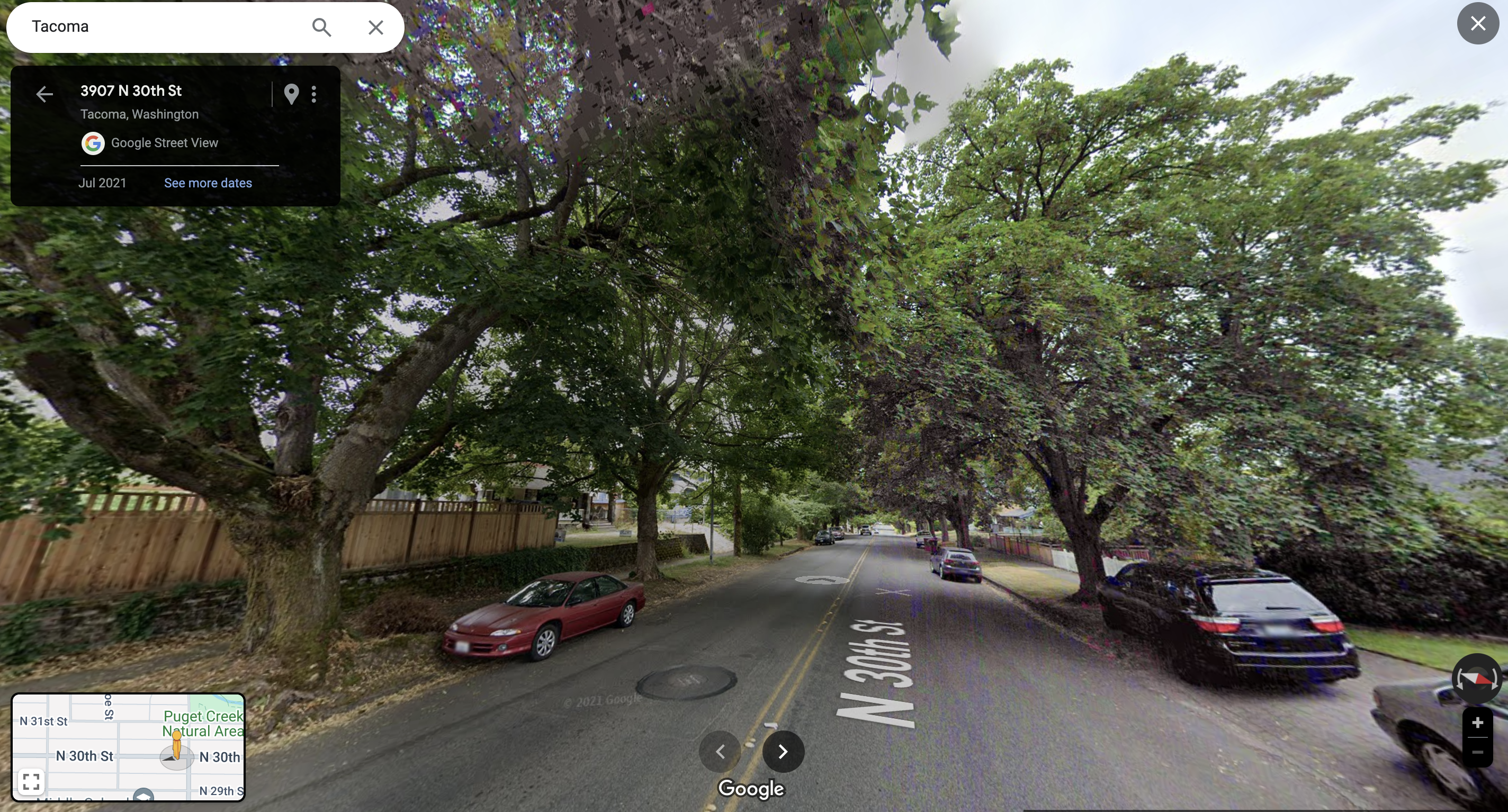If you haven’t done so already, you might want to start by reading our guide to evicting a tenant in Washington State. If you own or operate properties in Seattle or Tacoma, you might also want to check out our articles on Seattle and Tacoma rental housing code. This article will make more sense after reviewing the above resources.
You can only evict a tenant for 17 reasons in Washington State
If you’ve been a landlord in Washington for few years, you may remember the old days when landlords could provide a 20-day “no cause” notice to terminate a month-to-month tenancy. However, in 2021, the Washington state legislature passed new laws that completely changed the rules. Ihe 20-day notice is now dead for all tenancies subject to the the Washington Residential Landlord-Tenant Act.
Now, Washington landlords can only evict a tenant for one of the following 17 “causes” in RCW 59.18.650 and RCW 59.18.200:
- Tenant fails to pay rent
Notice: 14-day pay or vacate
Tips: The exact wording of the 14-day notice is specified by RCW 59.18.057. Here’s a compliant form prepared by the Washington State Attorney General. - Breach of rental agreement or tenant duty
Notice: 10-day comply or vacate
Tips: You must specifically identify “the acts or omissions constituting the breach” and state explicitly that if your tenant does not comply, the rental agreement will end. - Waste, nuisance, criminal acts, or unlawful activity
Notice: 3-day notice to vacate
Tips: Waste is when your tenant causes “substantial injury” to the premises. Nuisance is when your tenant causes “substantial discomfort” to neighbors. A court will not usually find waste or nuisance for minor breaches. - Landlord or immediate family intend to occupy the premises
Notice: 90-day notice to vacate
Tips: The landlord or their immediate family want to occupy the unit and there are no similar units vacant in the same building. - No cause eviction at the end of a 12-month term
Notice: 60-day notice to vacate prior to expiration of a 12-month term lease
Tips: The notice must be issued at least 60 days prior to the end of a 12-month lease term. This notice cannot be given to month-to-month tenants. - Refusal to sign a new rental agreement at the end of a 12-month term
Notice: New rental agreement provided at least 30 days before expiration of 12-month term lease
Tips: Applies only to fixed term rental agreements. Does not apply to periodic or month-to-month tenancies. - Selling a single-family residence
Notice: 90-day notice to vacate
Tips: The landlord intends to sell the unit and the units is a single-family residence. - Demolish, substantially rehabilitate, or change in use
Notice: 120-day notice to vacate
Tips: This notice does not apply in jurisdictions that have implemented a relocation assistance program under RCW 59.18.440, like Tacoma and Seattle. - Conversion to condominiums
Notice: 120-day notice to vacate - Premises condemned as uninhabitable
Notice: 30-day or as much written notice as possible
Tips: If uninhabitability is the landlord’s fault, that may be a violation under RCW 59.18.060 and RCW 59.18.085, requiring the landlord to pay three months of rent or treble the actual damages. - Shared housing
Notice: 20-day notice to vacate
Tips: Applies in roommate situations when the landlord or primary tenant share a living space (kitchen or bathroom) with the tenant to be evicted. - Transitional housing
Notice: 30-day
Tips: This notice applies when: (1) program has expired by its terms (2) tenant has aged out; or
(3) tenant has completed the program. - Lying on a rental agreement
Notice: 30-day notice to vacate
Tips: Applies if tenant knowingly lied to prevent landlord from denying application. - Legitimate economic or business interest
Notice: 60-day to vacate
Tips: This is the catchall notice that probably isn’t worth the time to serve, since the court can (and likely will) stay the writ of restitution for an additional 60 days. - More than 4 non-monetary lease violations in a 12-month period
Notice: 60-day to vacate
Tips: Requires written notice of the violation, must be specific, provide the opportunity to fix the problem and inform the tenant that termination may occur after four violations. - Tenant has to register as a sex offender during tenancy or failed to disclose the requirement to register at the outset
Notice: 60-day notice to vacate
Tips: Applies if tenant is required to register during the tenancy or failed to disclose the requirement to register. - Tenant sexual harasses other tenants or landlord
Notice: 20-day notice to vacate
Tips: Applies if tenant made unwanted advances or other acts of sexual harassment toward landlord and/or other tenants
If none of these 17 reasons to evict apply to your situation, you can’t evict your tenant.
Assuming at least one of these reasons applies, we’ve laid out the general eviction process in our comprehensive article explaining the Washington eviction process. However, before you check out that article, we have a few notes on these 17 reasons.
Nonpayment notices cannot ask for money other than “rent”
In a 14-day notice to pay or vacate, you can ask your tenant for “rent,” which is defined as follows:
“Rent” or “rental amount” means recurring and periodic charges identified in the rental agreement for the use and occupancy of the premises, which may include charges for utilities. Except as provided in RCW 59.18.283(3), these terms do not include nonrecurring charges for costs incurred due to late payment, damages, deposits, legal costs, or other fees, including attorneys’ fees.
RCW 59.18.030.
In other words, you can ask the tenant to pay utilities in a 14-day notice, but not late fees or attorneys’ fees. The maximum late fees you can obtain in an unlawful detainer lawsuit is $75 per RCW 59.18.410. It doesn’t matter what your lease says, the state law takes priority.
Be cautious when serving a 90 or 120-day notice
There are two reasons to be cautious about serving these notices. First, if you get them wrong, you’ll have to wait a long time twice when a court requires you to reissue them. To save time on potential errors, it may be worth hiring an attorney to prepare these notices.
Second, you need to be careful about serving these notices along with other notices because doing so could send mixed messages to the court. Let me explain. Imagine you have a tenant who is causing a nuisance to other tenants or has substantially damaged the premises. You just so happen to also want to rehabilitate the building. The tenant is therefore eligible for a 3-day notice to vacate and a 120-day notice to vacate to substantially rehabilitate the premises.
If you decide, after issuing the 120-day notice, to try to evict using the 3-day notice for nuisance instead, the tenant’s attorney may argue that you’ve fabricated the nuisance allegations to justify an early eviction so you could rehab the property faster. In other words, issuing the longer notice could undermine your case on the shorter notice.
The same thing can happen with a 90-day notice to sell or move in, etc. As a result, landlords should use caution when issuing these notices if a tenant also qualifies for a shorter notice.
You should also be cautious when using the following three notices
The following notices all have built-in counterarguments, which makes it less likely the court will find in your favor.
First, the catchall 60-day notice for “other legitimate economic business interest” is a loser. To succeed with an eviction on this notice, you’d have to argue that your unusual situation constitutes a “legitimate economic business interest,” which has no legal definition. Even if you do succeed, the court is expressly allowed to delay the physical eviction at least 60 days, which effectively turns this 60-day notice into a 120-day notice.
Second, the 30-day notice for lying on a rental application is difficult to prove and unsympathetic in the eyes of the courts. If your tenant is paying on time, taking care of the unit, and not bothering neighbors, what does it matter if they lied on the rental application? We usually advise our clients to avoid this notice entirely as well.
Third, the 60-day notice for four violations in a 12-month period is also very difficult to prove. Each of the four violations must be documented with a written warning issued at the time of the violation, and all four violation notices must be issued in a 12-month period. Unlike the above two notices, we don’t necessarily recommend avoiding this notice entirely. However, if you’re able to evict for some other reason, you may not want to bother issuing this notice.
Beware: Landlords must “strictly comply” with most notice requirements
The unlawful detainer (i.e., eviction) statute is “strictly construed in favor of the tenant.” If a landlord fails to “strictly comply” with the “time, place, and manner” requirements of the unlawful detainer statute, the court will be forced to dismiss the case. What is a “time, place, and manner” requirement? It’s not entirely clear. If the landlord omits elements of a required notice form, that is probably a violation of a “manner” restriction. If the landlord provides the tenant with the wrong notice deadline, that would probably be a violation of a “time” requirement. Essentially, anything that misinforms a tenant or robs them of their right to defend will probably not sit well with the court.
To be clear, “strict compliance” isn’t required for every element of these notices, just the “time, place, and manner” requirements. There are some older cases indicating that if the landlord inadvertently overstates the amount owed, fails to sign the notice, or defectively describes the premises, the notice may still be valid. However, it’s better to get it right.



